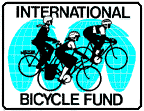Tourism Development: Outline of Advantages and Disadvantages
WE WOULD LOVE
YOUR SUPPORT!
Our content is
provided free
as
a public service!
![]() IBF is 100%
IBF is 100%
solar powered
![]()
Advantage (depending upon implementation some of these can turn into disadvantages)
-
employment (1 emp/1000 tourists) (labor intensive, few administrative positions, little upward mobility.)
-
infrastructure development (roads, water, electricity, telecom and cybercom, but not necessarily driven by local priorities.)
-
cultural preservation (economic incentives to preserve food, fashion, festivals and physical history, but these tend to be superficial elements of a culture.)
-
environmental protection (econ incentives to preserve nature, wildlife and urban cleanliness)
-
foreign exchange (generates resources to import food, pharmaceuticals, technology, consumer goods, energy.)
-
development of health care services (those these aren't always available to local people.)
Disadvantages (depending upon implementation some of these can turn into advantages)
-
cultural destruction, (modernization (world mono-culture), freezes culture as performers, loss: language, religion, rituals, material culture.)
-
primary products (sun, sand, surf, safari, suds, ski, sex) (little value added, neo-colonialism)
-
environmental destruction (motorization, game drives, resorts: golf, ski, shoreline development, desert and oasis over development, world as play ground, SUV.)
-
marginal employment (low skill, low wage, menial services, prostitution, drug trade, gambling, curio seller, hustlers.)
-
low benefits (no job security, no health care, no organizing, no work safety rules or enviro standards.)
-
development of illegal and/or destructive economic activities (markets for drugs, endangered species, etc.)
-
outside hiring (skilled middle and senior management recruited from out of the area and transferred in.)
-
concentration employment (walled resort enclaves.)
-
seasonal employment
-
outside decision making (decisions made outside of the area, corporate dollars corrupt government.)
-
unrealistic expectations (divert young people from school and brighter futures.)
-
anti-democratic collusion (industry support of repressive governments)
-
land controlled by the elite (people relocated, agriculture eliminated, prohibited from N.P.)
-
negative lifestyle's (STD's, substance abuse, begging, hustling)
-
diverted and concentrated development (airport, roads, water, electricity to tourist destinations, development not accessible to locals),
-
little forex stays in country (airplanes, vehicles, booze, hot air balloons, generally have foreign owners),
-
package programs
-
cruises (eat and sleep on board so the economic benefits to the ports-of-call is very thin and limited.)
-
unstable market (fickle, affected by local and world events, generally highly elastic)
-
health tourism (traveling to get medical procedure at lower cost) has it own set of unique challenges, which include: Determining the credential, skills and quality of the facility and personnel. Language communication challenges on topics requiring a lot of details, sometimes even when both parties seemingly speak the same language. Different cultural issues and expectations around health care and the body. Post-treatment complications, after the "tourist" has left the facility.
Solutions (for visitor)
-
act to support cultural diversity
-
engage in activities that add value to the community
-
don’t do activities that deteriorate the environment
-
don’t engage in illegal activities
-
act to disperse the benefits
-
patronize locally (community) owned enterprises.
Solutions (for the host)
-
support the traditional cultural legacy
-
training and education in local culture, history, natural science, etc.
-
select development and activities that draw from local traditions and add value to the community
-
don’t promote activities that deteriorate the environment
-
don’t engage in illegal activities
-
adopt a program to disperse the benefits
-
patronize locally produced products and locally (community) owned enterprises.
-
make business and foreign exchange transactions transparent and efficient.
We don't really see a different list of pros and cons for tourism in rural and urban areas. Rural or urban, the result largely depend upon how the business is conducted: Are visitors coming and supporting what the community prides itself in and in a way that perpetuates and sustains (or improves) the quality of life in the community)? Are are the activities of the tourist detrimental to the values, environment and culture of the community in the long run?
Related article:
- E3 Travel and Tourism - Environment, Economics, Education
- Green Travel: Planning a Better Vacation
- Responsible Travel Index
Home | About Us | Contact Us | Contributions | Economics | Education | Encouragement | Engineering | Environment | Bibliography | Essay Contest | Ibike Tours | Library | Links | Site Map | Search
![]()
The International Bicycle Fund is an independent, non-profit organization. Its primary purpose is to promote bicycle transportation. Most IBF projects and activities fall into one of four categories: planning and engineering, safety education, economic development assistance and promoting international understanding. IBF's objective is to create a sustainable, people-friendly environment by creating opportunities of the highest practicable quality for bicycle transportation. IBF is funded by private donation. Contributions are always welcome and are U.S. tax-deductible to the extent allowed by law.
![]()
![]() Please write if you have questions, comment, criticism, praise or
additional information for us, to report bad links, or if you would like to be
added to IBF's mailing list. (Also let us know how you found this site.)
Please write if you have questions, comment, criticism, praise or
additional information for us, to report bad links, or if you would like to be
added to IBF's mailing list. (Also let us know how you found this site.)


